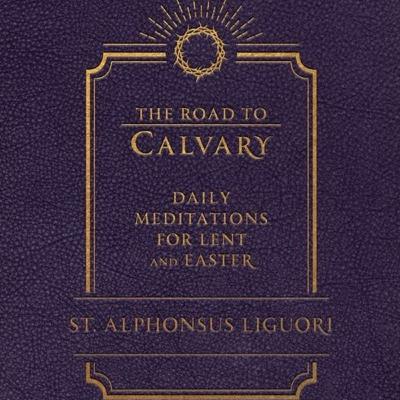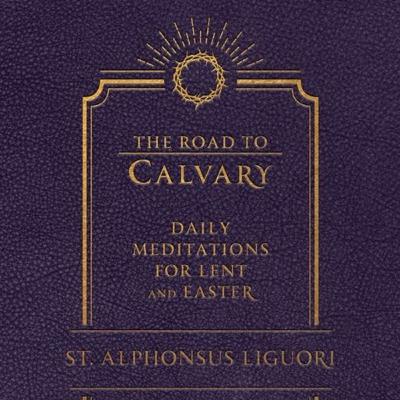The Road to Calvary: Daily Meditations... by St. Alphonsus Ligouri. Thursday after Ash Wednesday
Update: 2024-02-16
Description
Adoramus Te, Christe, et benedicimus Tibi - We adore You, O Christ, and we praise You!
Quia per Sanctam Crucem Tuam redemisti mundum - because by Your Holy Cross You have redeemed the world!
Kyrie eléison - Lord have mercy!
The Road to Calvary
Daily Meditations for Lent and Easter
St. Alphonsus Ligouri
Meditation 2: Thursday after Ash Wednesday
The Love of Jesus Christ
See Isaiah, 53: 4-7, and Romans 8:32
We read in history of a proof of love so prodigious that it will be the admiration of all ages. There was once a king, lord of many kingdoms, who had one only son - so beautiful, so holy, so amiable that he was the delight of his father, who loved him as much as himself.
This young prince had a great affection for one of his slaves, so much so that, the slave having committed a crime for which he had been condemned to death, the prince offered himself to die for the slave; the father, being jealous of justice, was satisfied to condemn his beloved son to death in order that the slave might remain free from the punishment that he deserved, and thus the son died a malefactor's death, and the slave was freed from punishment.
This fact, unlike anything that has happened in this world, and never will, is related in the Gospels.
Quia per Sanctam Crucem Tuam redemisti mundum - because by Your Holy Cross You have redeemed the world!
Kyrie eléison - Lord have mercy!
The Road to Calvary
Daily Meditations for Lent and Easter
St. Alphonsus Ligouri
Meditation 2: Thursday after Ash Wednesday
The Love of Jesus Christ
See Isaiah, 53: 4-7, and Romans 8:32
We read in history of a proof of love so prodigious that it will be the admiration of all ages. There was once a king, lord of many kingdoms, who had one only son - so beautiful, so holy, so amiable that he was the delight of his father, who loved him as much as himself.
This young prince had a great affection for one of his slaves, so much so that, the slave having committed a crime for which he had been condemned to death, the prince offered himself to die for the slave; the father, being jealous of justice, was satisfied to condemn his beloved son to death in order that the slave might remain free from the punishment that he deserved, and thus the son died a malefactor's death, and the slave was freed from punishment.
This fact, unlike anything that has happened in this world, and never will, is related in the Gospels.
Comments
In Channel











